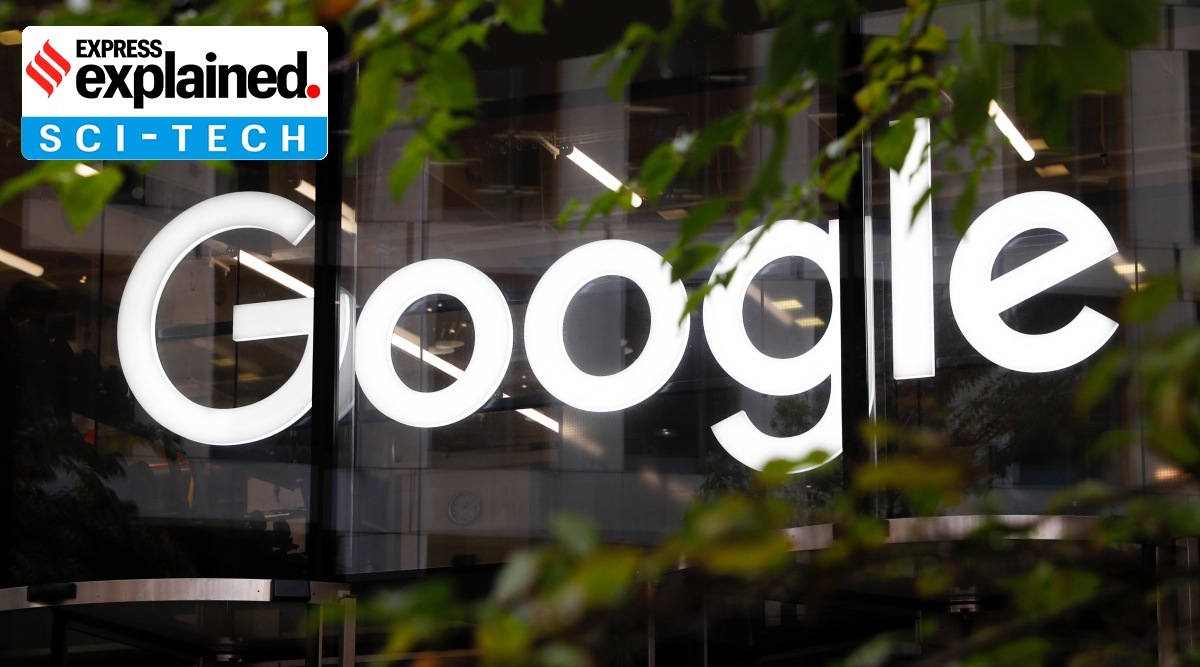Google has filed an appeal in the Supreme Court against a verdict by the National Company Law Appellate Tribunal (NCLAT) where it upheld a penalty of Rs 1,338 crore imposed by India’s competition regulation body on the company, for its anti-competitive conduct in the Android ecosystem.
Google’s appeal comes just weeks after the Competition Commission of India (CCI) also appealed the NCLAT order in the Supreme Court. In January, the Supreme Court refused to suspend any of the antitrust remedies ordered by the CCI against Google last year. It had asked the NCLAT to hear the case on merit and rule by March end.

The contest between Google and CCI was among the most high-profile battles globally between a tech giant and a regulator, one that was being followed closely by governments across the world. About 97 per cent of the 600 million smartphones in India run on Android, according to Counterpoint Research estimates.
Why has Google appealed the NCLAT order?
Google said that the NCLAT “correctly found” that harm for anti-competitive behaviour needs to be proven, but “did not apply this requirement to several of the CCI’s directions that it upheld”.
“We look forward to presenting our case before the Supreme Court and demonstrating how Android has benefitted Indian users, developers, and OEMs, and powered India’s digital transformation,” the company said in a statement.
What did the NCLAT order entail?
In March, the NCLAT upheld CCI’s Rs 1337.76 crore penalty on Google for antitrust violations while largely confirming its findings from last October that said Google abused its market dominance in the Android ecosystem. It held that mandating pre-installation of its entire Google Mobile Suite (GMS) – a family of key Google apps and services such as Google search, Chrome browser, YouTube, Google Maps, and Gmail – amounted to “imposing unfair conditions on OEMs which is an abuse of dominant position” by the company.
By making pre-installation of its GMS suite conditional to signing various agreements, such as Anti-fragmentation Agreement (AFA) and Android Compatibility Commitment Agreement (ACC) with the OEMs, the tribunal said that Google had “reduced the ability and incentive of devices manufacturers to develop and sell self-device operating or alternative version of Android and Android Forks and thereby limited technical and scientific development”.
Story continues below this ad
By bundling products like its search engine or the Chrome browser, Google had perpetuated its dominant position, NCLAT said. In its detailed order, the NCLAT held that the CCI in its order against Google did not violate the principles of “natural justice” and based it on relevant material submitted to it.
However, NCLAT offered some relaxation to Google.
How did Google score a partial victory in the NCLAT order?
Google managed to achieve some key relaxations in the final verdict pronounced by the NCLAT, primarily those that would have severely impacted its own products. Google will now not need to allow hosting of third-party app stores inside the Play Store, as had been previously ordered by the CCI.
Google will also not need to allow users to remove pre-installed apps such as Google Maps, Gmail and Youtube. The company can also continue imposing curbs on so-called “sideloading”, a practice of downloading apps without using an app store, which CCI had said must be discontinued.
Could the order on Google shape India’s internet regulations?
The Central Government is viewing the NCLAT verdict favourably. A senior government official said that even though the NCLAT has set aside some of the non-monetary conditions from the CCI order, “the key win here is that abuse of dominance by Google has now been proved”. The official added that this “opens the gate for the government to formulate substantive regulations to ensure that such an abuse of dominance can be curtailed in the future”.
Story continues below this ad
“In many ways, this judgement sets the stage for dual regulators in the online space for various sectors. One will be a nodal regulator and one will be a sectoral regulator, who will both work together in framing rules for the respective sector and regulate it,” the official said.








































